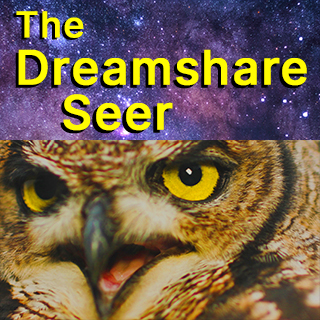Art Monthly 431
November 2019
Frances Stark
Isobel Harbison
Déjà vu, all over again
Francis Frascina
The Interface: Mark Fisher and John Berger
Paul Walsh
The Politics of Appeasement
Morgan Quaintance
Buy Now – select:
Want to read this right now?
Get instant access to the entire back catalogue via Exact Editions from only £8.99!
Contents
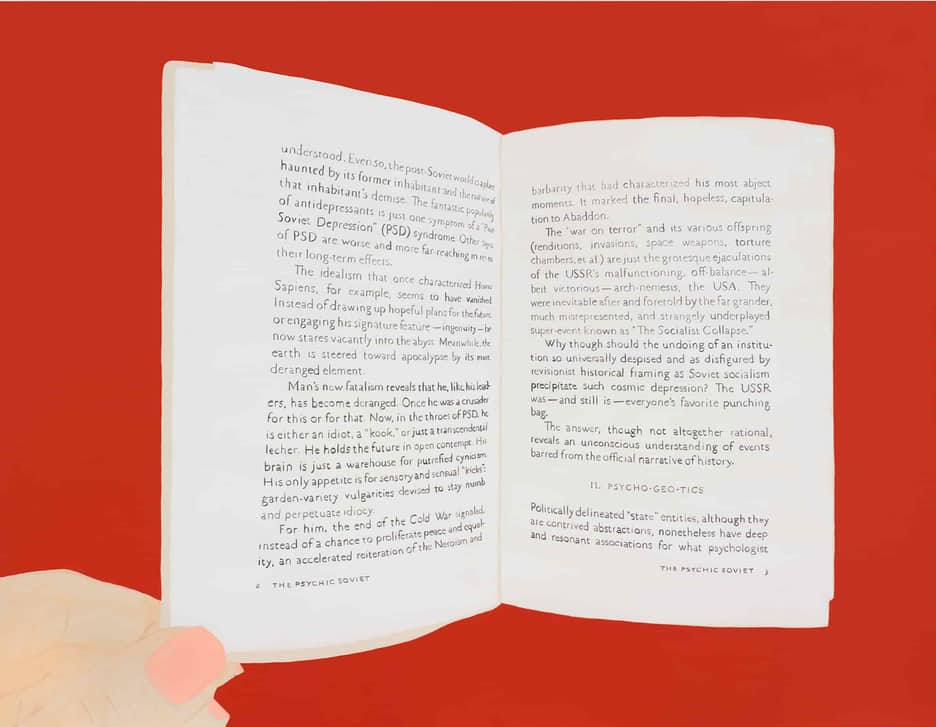
Frances Stark, Reading Ian Svenonius’s Psychic Soviet from 2006, 2019
Interview
An Un-American Pavilion
Frances Stark interviewed by Isobel Harbison
The LA-based artist discusses Mike Kelley, her favourite art films, telling stories, binge-watching The Wire, the failed promise of social media, constructing her own pavilion, and the importance of amateurishness.
I feel like we are in a cultural moment where there is an explosion of hyper-promiscuity and hyper-exhibitionism, and the monetising of any kind of art. Everything on Instagram is about how and what these amazing creative people are going to teach you while, in fact, the support systems for civic life and any kind of culture are completely under duress. And I find that sickening.
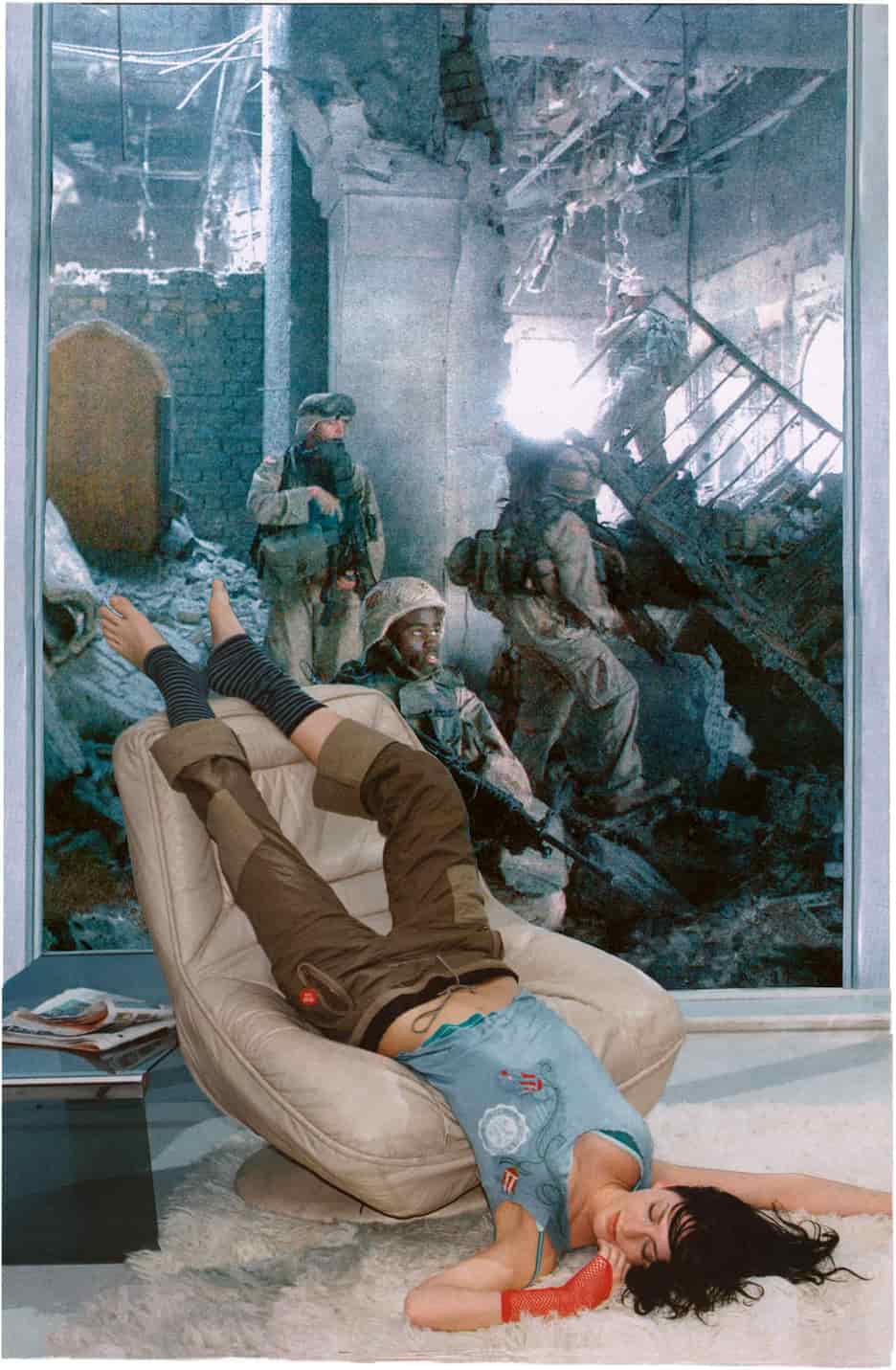
Martha Rosler, Lounging Woman, 2004, from the series ‘House Beautiful: Bringing the War Home’
Feature
Déjà vu, all over again
Francis Frascina looks back at 50 years of art activism and discusses approaches that current activists might take
Guerrilla Art Action Group argued in 1969 that ‘a group of extremely wealthy people are using art as a means of self-glorification and as a form of social acceptability. They use art as a disguise, a cover for their brutal involvement in all spheres of the war machine.’
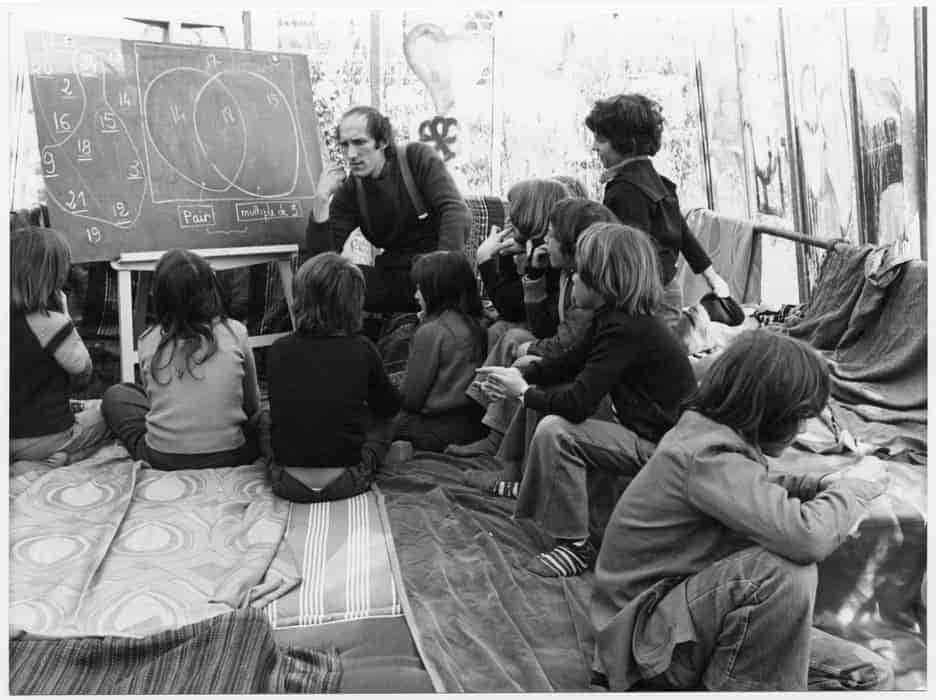
Alain Tanner, Jonas Who Will Be 25 in the Year 2000, 1976, film co-written by John Berger
Feature
The Interface: Mark Fisher and John Berger
Paul Walsh seeks a space from which voices of contemporary dissent might emerge
The interface walls of Northern Ireland, structures that on the surface divide, dominate and destroy, also exist as liminal entities in their own right. They indicate what is at stake when two bodies encounter one another, and the potential this encounter holds.
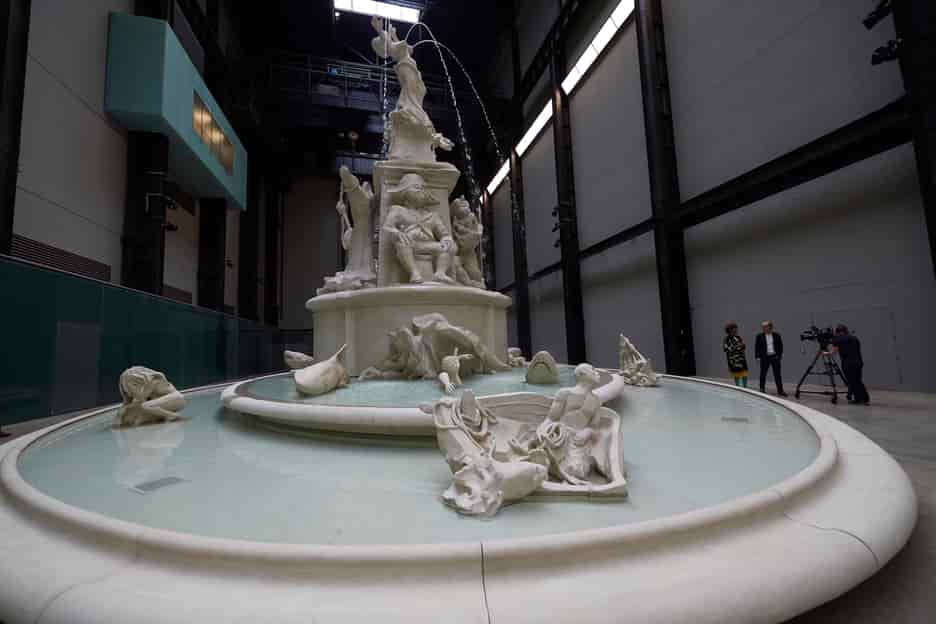
Kara Walker, Fons Americanus, 2019, Tate Modern, London
Feature
The Politics of Appeasement
Morgan Quaintance anatomises the problems raised by Kara Walker’s Tate Modern commission
What renders Kara Walker’s brand of ‘critique’ so attractive and so appealing to institutions keen to virtue signal? The historical distance. For hers is work that miraculously ‘speaks to the present’ by ignoring it entirely, training its monomaniacal vision on the past.
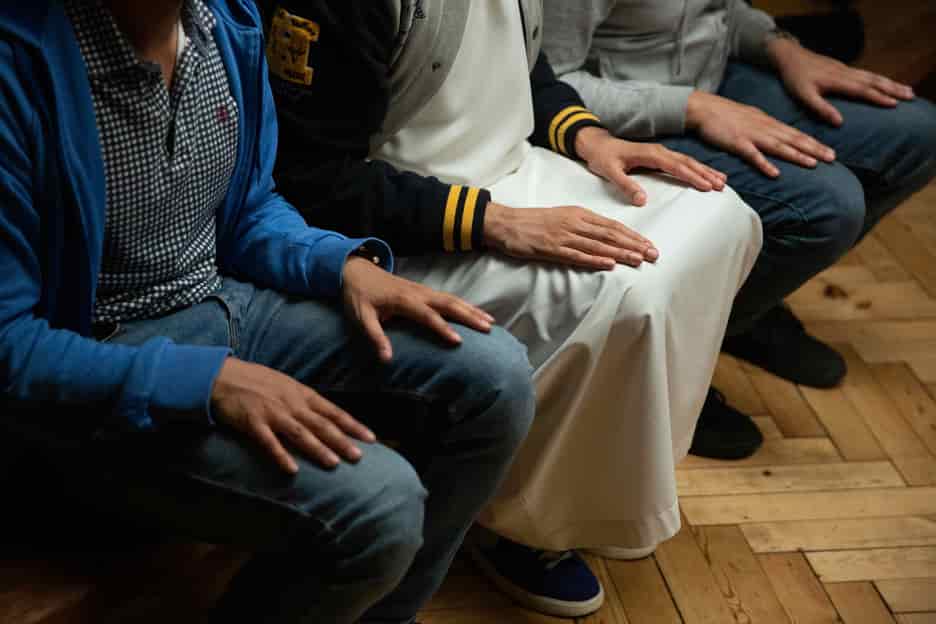
Imran Perretta, the destructors, 2019
Profile
Imran Perretta
George Vasey discusses the coercive role of images and hidden racial, social and economic biases of photographic and other technologies, as revealed in the work of the London-based artist.
Imran Perretta’s films interrogate visual regimes, exploring how power and surveillance are focused on black and brown people’s bodies. His films are, in part, a product of growing up in London as a teenager in the aftermath of the 9/11 attacks and being of Bangladeshi heritage.
Comment
Editorial
Creative Thinking
The current valorisation of ‘creativity’ – in strategies for the arts, health and education, not to mention pro-Brexit political strategies – reveals how this term, when unmoored from disciplines such as the arts, has no ethical underpinnings can be hijacked to support market-orientated ideologies on the one hand, and to mask cuts to social and community care on the other.
For populist politicians and their political advisers, the arts are an easy target for funding cuts. Yet, at the same time, the arts are shamelessly deployed by ministers to plug gaps in social policy.

The Twist, Kistefos Museum, Jevnaker, Norway
Artnotes
Creativity for All!
The Durham Commission on Creativity and Education publishes its first report promoting the teaching of ‘creativity’; BP is dropped as a sponsor by the Royal Shakespeare Company after pressure from young protesters; Arts Council Wales publishes guidelines on minimum rates of pay for artists and technicians; the DCMS promises more money for long-suffering libraries and regional museums; plus the latest news on galleries, appointments, prizes and more.
Obituary
Eliseo Mattiacci 1940–2019

Alberta Whittle, between a whisper and a cry, 2019
on show at DCA, Dundee
Exhibitions
Walking Through Walls
Gropius Bau, Berlin
Martin Herbert
16th Istanbul Biennial: The Seventh Continent
Various venues
Chris Clarke
Toronto Biennial of Art: The Shoreline Dilemma
Various venues
Harry Thorne
Still Undead: Popular Culture in Britain Beyond the Bauhaus
Nottingham Contemporary
David Trigg
Susan Hiller: Ghost/TV
Matt’s Gallery, London
Andrew Hibbard
The Body Electric
Yerba Buena Center for the Arts, San Francisco
Glen Helfand
Jo Spence and Oreet Ashery: Misbehaving Bodies
Wellcome Collection, London
Maria Walsh
Sidsel Meineche Hansen: Welcome to End-Used City
Chisenhale, London
Frances Whorrall-Campbell
Alberta Whittle: How Flexible Can We Make the Mouth
DCA, Dundee
Adam Benmakhlouf
Sligo, Cork and Leitrim Round-up
The Model, The Glucksman, The Dock
Joanne Laws
Reviews
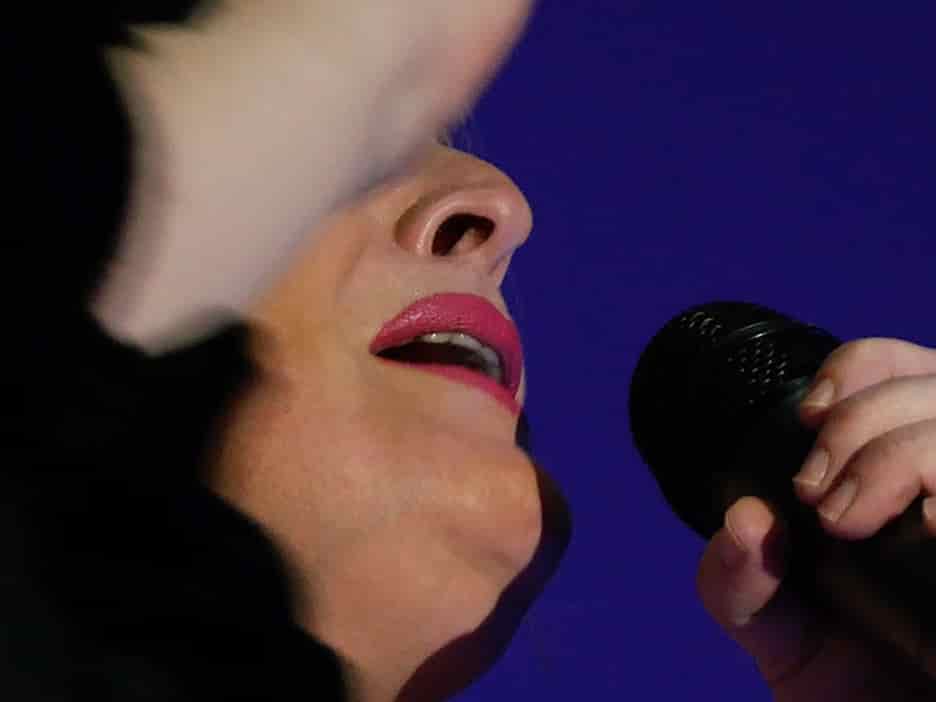
Nina Danino, I Die of Sadness Crying for You, 2019
Film
BFI London Film Festival: Experimenta
Elisabetta Fabrizi
By curbing the ability of the festival’s audience to consider the works as contemporary art, it allows them to be read more clearly as film culture.
Reviews
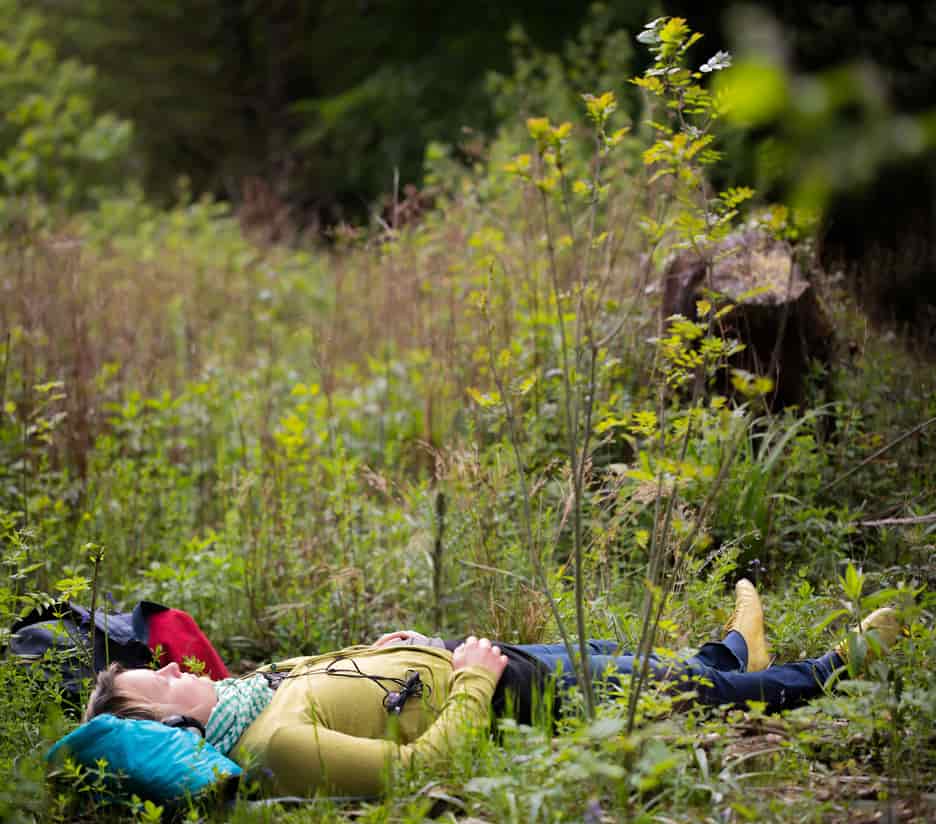
French & Mottershead with The Ballad of Peckham Rye, Woodland, 2019
Sound
French & Mottershead: Woodland
Adam Hines-Green
The work places the viewer in the role of the corpse – your own corpse – and then narrates what it feels like to be your body in that state.
Reviews
Books
Mckenzie Wark: Capital is Dead – Is This Something Worse?
Dave Beech
Mckenzie Wark argues that the classic confrontation between proletariat and capital has been replaced or displaced by the rise of a class of owners and controllers of information: ‘A vectoralist class owns the means of organising the means of production.’
Reports
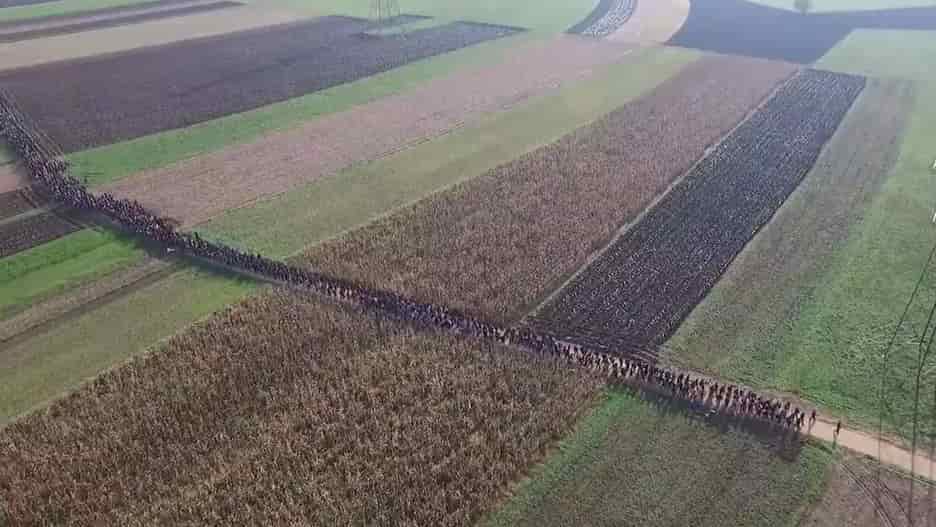
Stefan Kruse, The Migrating Image, 2018
Letter from Samos
Island Home
Stephanie Bailey
The EU, one of the Mediterranean Sea’s custodians, emerges as a clear culprit in the ‘13,700,000km3’, exhibition curated by Katerina Gregos at Art Space Pythagorion.
Reports

Pamela Rosenkranz, Healer (Waters), 2019
Reports
Letter from Okayama and Kobe
Agnieszka Gratza
Notably, most of the 18 artists and artist collectives featured in the Summit, including Pierre Huyghe, hail from France and the US; barring perhaps Mika Tajima, Japanese artists were conspicuous by their absence.
Artlaw
Money
Tariff-Free Art Trade
Henry Lydiate
Little or no attention has been paid to the US’s far-reaching and unilateral imposition on 18 October of new stringent 25% tariffs on the importation of artwork into the US from the UK.
Listings
Events
Calendar
The updated events and exhibitions calendar can be viewed online.
Exhibitions
Exhibition Listings
Art Monthly's exhibition listings can be viewed online.




